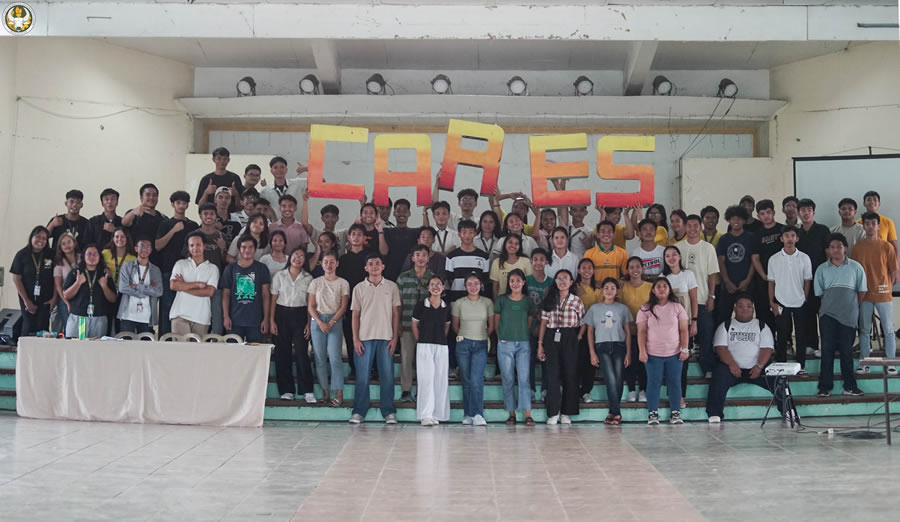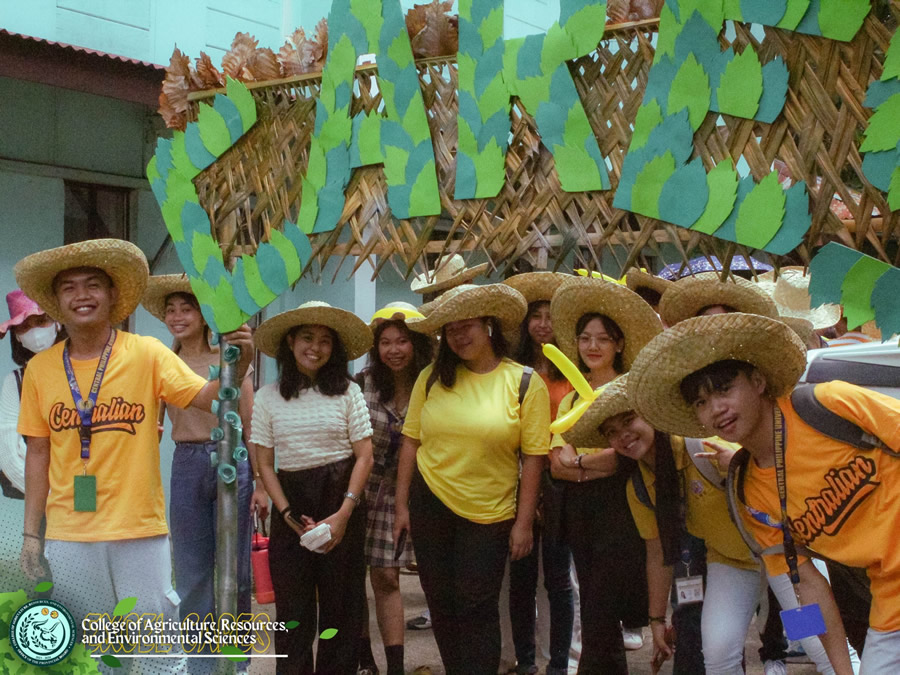By Karren Jay G. Asgar & Mikee N. Norico
Join the growing family of Buffalo Reapers, where students passionate about farming, environmental management, and sustainable development can grow and thrive in an inspiring academic environment.
If you are interested in farming, environmental management, and sustainable development, then an inspiring academic environment to nurture the leaders of tomorrow is what awaits you at the College of Agriculture, Resources, and Environmental Sciences (CARES) at Central Philippine University (CPU).
The CPU-College of Agriculture, Resources, and Environmental Sciences (CPU-CARES) offers three dynamic programs which are the Bachelor of Science in Agriculture, Bachelor of Science in Agricultural and Biosystems Engineering, and Bachelor of Science in Environmental Management.
“Our goal at CARES is to produce not just graduates, but professionals who will innovate and lead in their respective fields. We want our students to embrace agriculture as not just a way of life, but as a business opportunity that can drive the economy and improve our communities,” said Dr. Jaime Cabarles, Jr., Dean of CPU-CARES, in an interview.
Buffalo Reapers during the Freshmen Walk, taking their steps into a promising journey within the Centralian community. Be part of their growing family!
For the first semester of SY 2024-2025, CPU-CARES has a total of two hundred ninety-two (292) enrollees. While enrollment in the BS Agriculture and Agricultural Engineering program has dwindled to fewer than 100 students this semester, the Environmental Management program is on the rise. According to Dr. Cabarles, the retention policy of the college is the reason why BS Agriculture and BS Agricultural Engineering have declined in enrollment since students are only allowed four failing grades. This policy, though challenging, serves as a test to ensure that students are both committed and academically prepared for the demands of these programs.
“If there are no retention policies, we might have a higher number of enrollees. In the past, we had over 400 students each semester,” he remarked. However, Dr. Cabarles is hopeful that all three programs will see an increase in enrollment in the coming semesters as CPU-CARES continues to innovate and set itself apart in the highly competitive landscape of agricultural education.
Despite the challenges, Dr. Cabarles is optimistic about the future. “We expect enrollment to rise in the coming semesters. While agriculture programs face stiff competition from over 28 universities in Western Visayas, we remain committed to innovation and excellence in education,” he shared.
Dr. Cabarles also said that he was once offered a proposal to offer a VetMed program, but investments in facilities and equipment were just too much to be considered in moving forward with the plan. For now, existing programs are being improved so that they will not fall behind and become vulnerable to the ever-changing nature of the industry. “We prioritize strengthening our current offerings and ensuring that they are adaptable to the changing needs of the agricultural sector,” he added.
A key highlight about CPU-CARES experiences relates to its strong emphasis in research and innovation through campus life. The college would push students to see farming more beyond manual labor, towards how it can be a business and scientifically orientated. “Agriculture remains a cornerstone of the Philippine economy. If you want to secure a sustainable future, agriculture is where you need to be,” Dr. Cabarles emphasized. The college’s research is also translated into commercialization, making CPU-CARES a leader in agricultural innovation.
CPU-CARES has passed board examinations consistently, posting a 76% rate for BS Agriculture and 70% in BS Agricultural Engineering during the recent board exams. Although these rates declined from what was recorded in the previous years, when it posted above 80% rates, the college continues to perform well in Western Visayas. According to Dr. Cabarles, this is because of the challenges posed by the pandemic, which included shifting to online learning and how it affected practical training.
One of the recent achievements of the college is its recognition as one of the top agricultural schools in the Philippines. Moreover, it hosted the 10th Organic Agriculture Trade Fair and Exhibits in November 2024, which featured innovative organic products from Iloilo. The college takes pride in the progress of its students, such as fourth-year BSEM student Lady Kyla Balibagoso, a Top 5 Finalist in the Circular Stories Programme by Circular Cities Asia for her project that featured waste management in Tagubanhan Island.
Dr. Cabarles invites prospective students to join CPU-CARES for a future in sustainable agriculture and environmental management. “If you want a sustainable future, join us. Agriculture drives the economy. At CARES, we don’t just teach students how to work the land; we teach them how to innovate and create businesses in farming. I encourage students who want to pursue a business in farming to enroll with us. Why? Because CPU-CARES is an educational institution in the Philippines that converts research into commercialization. We believe in research that translates into real-world solutions for our communities,” he said.
It is more than an academic institution; it is a center for innovation and research, empowering students to make lasting impacts. CPU-CARES is committed to sustainable agriculture, environmental management, and the commercialization of research. This makes it a great choice for students who want to shape the future of agriculture and the environment.
For students who wish to enroll in the programs under the CPU-College of Agriculture, Resources, and Environmental Sciences, the CPU College Aptitude Test (CPUCAT) is now open for admissions. For more information, kindly access this link: https://cpu.edu.ph/cpu-college-aptitude-test-cpucat/


